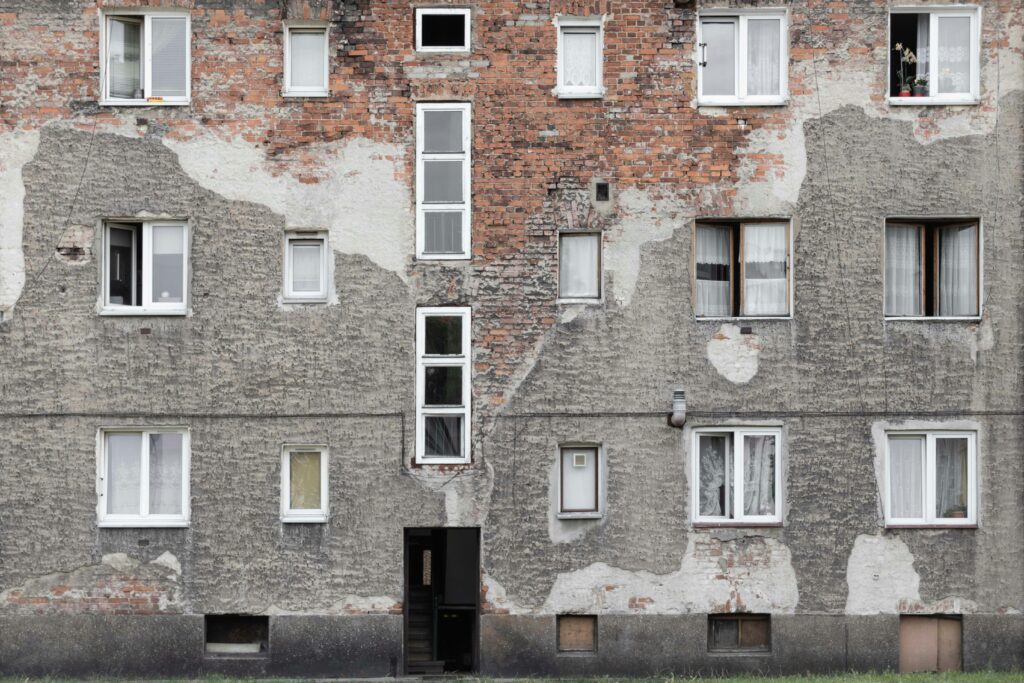Across the United Kingdom, thousands of tenants face the daily challenge of living in properties that are unfit for habitation. Damp, mould, leaking roofs, and broken heating systems are not just minor inconveniences — they can seriously affect one’s health, wellbeing, and quality of life. Yet, despite clear legal protections, many tenants find their repair requests ignored or delayed by landlords. This is where legal expertise becomes essential.
Professional Housing Disrepair Solicitors play a vital role in ensuring tenants’ rights are upheld and that they receive fair compensation for the distress and hardship caused by negligent landlords. They guide tenants through the complex process of making a claim, ensuring that justice is served and living conditions are restored to a safe, acceptable standard.
Understanding Housing Disrepair
Housing disrepair occurs when a property falls below the legal standards required for safe and comfortable living. It can involve issues such as:
- Persistent damp and mould growth on walls or ceilings
- Leaking pipes, roofs, or gutters
- Heating and boiler failures, especially during cold months
- Faulty electrics, plumbing, or gas systems
- Infestations caused by poor maintenance
- Cracks in walls, damaged flooring, or unsafe staircases
- Broken windows, doors, or inadequate insulation
These issues are not simply aesthetic concerns — they can lead to serious physical and emotional harm. Mold exposure can trigger respiratory illnesses, while faulty electrics or gas leaks can pose life-threatening risks. Under UK housing law, landlords have a duty to ensure that their properties are safe, habitable, and well-maintained.
Landlords’ Legal Responsibilities
The Landlord and Tenant Act 1985 and the Homes (Fitness for Human Habitation) Act 2018 outline clear responsibilities for landlords. They are required to:
- Maintain the structure and exterior of the property.
- Keep heating, plumbing, gas, and electrical systems in good working order.
- Ensure that the property is free from serious hazards.
When these obligations are ignored, tenants have every right to take legal action. However, the process can be complex and intimidating without professional support, particularly for those unfamiliar with housing law or facing resistance from landlords or housing associations.
When Can Tenants Make a Claim?
A claim for housing disrepair compensation can be made when a landlord fails to act after being notified of the problem. It is essential that tenants first report any issues formally — preferably in writing — to give the landlord a reasonable opportunity to carry out repairs.
If, after repeated complaints, the landlord fails to take appropriate action, the tenant may then be eligible to pursue legal compensation. The claim can cover:
- Physical discomfort and inconvenience caused by the disrepair
- Damage to personal belongings (such as clothing, furniture, or electronics)
- Health problems resulting from unsafe living conditions
- Increased heating bills or other financial losses
The law is clear: tenants should not have to suffer because of a landlord’s negligence.
The Role of Housing Disrepair Solicitors
Specialist solicitors provide a comprehensive service that guides tenants through every step of the claims process. Their role extends far beyond legal representation — they act as advocates for tenants’ rights, ensuring that landlords are held accountable for their duties.
1. Case Evaluation
The process begins with a consultation, during which the solicitor reviews the details of the tenant’s living conditions, photographs, correspondence with the landlord, and any medical or financial impacts. Based on this information, they determine whether there is a valid claim and what level of compensation may be pursued.
2. Professional Inspection
A surveyor is often arranged to inspect the property. The surveyor’s report provides vital evidence — documenting the extent of disrepair, the likely cause, and the effect on the tenant’s living conditions. This professional assessment strengthens the case by providing objective proof.
3. Communication with the Landlord
Once sufficient evidence is gathered, the solicitor formally contacts the landlord or housing association, setting out the issues and requesting that repairs be carried out promptly. A letter of claim is issued, which outlines the legal grounds and the compensation sought.
4. Negotiation and Resolution
In many cases, solicitors are able to reach a settlement without court proceedings. They negotiate on the tenant’s behalf, ensuring fair compensation and agreement on repair deadlines. This approach saves time, stress, and costs for all parties.
5. Court Proceedings (If Necessary)
If the landlord fails to cooperate, solicitors will escalate the matter to court. They prepare all legal documents, represent the tenant, and present the evidence in a professional and persuasive manner. Courts can order landlords to make repairs and pay financial compensation for distress, inconvenience, or health impacts.
The Benefits of Professional Legal Support
Attempting to manage a disrepair claim alone can be challenging, especially when landlords are unresponsive or dispute responsibility. Legal professionals offer several key advantages:
- Expert Knowledge: They understand the intricacies of housing legislation and know how to apply it effectively.
- Evidence Gathering: Solicitors ensure all evidence — from inspection reports to medical records — is properly documented.
- Reduced Stress: Handling negotiations and legal procedures can be overwhelming; solicitors manage these steps with professionalism and care.
- Financial Accessibility: Many firms operate on a no-win, no-fee basis, allowing tenants to pursue claims without upfront costs.
The goal is not only to secure compensation but also to ensure the property is repaired, creating a safe and habitable home once again.
What Tenants Can Expect to Receive
The amount of compensation awarded depends on several factors, including the severity of the disrepair, the length of time the tenant was affected, and the overall impact on health and lifestyle.
Typical compensation may include:
- General damages: For inconvenience, discomfort, and loss of enjoyment of the home.
- Special damages: To cover the cost of damaged belongings or additional expenses (such as higher energy bills).
- Health-related compensation: If medical evidence links health issues to poor living conditions.
While no amount of money can undo the stress caused by prolonged disrepair, financial compensation provides recognition of the hardship endured and ensures accountability on the landlord’s part.
Health Implications of Living in Disrepair
One of the most distressing aspects of housing disrepair is its effect on physical and mental health. Long-term exposure to damp and mould can cause breathing difficulties, allergies, and even chronic illness. Poor heating can worsen conditions such as arthritis or asthma, and unsafe electrics or leaks pose obvious dangers.
Beyond the physical risks, the emotional toll can be significant. Living in constant discomfort, feeling ignored by a landlord, and worrying about the safety of children or loved ones can lead to anxiety, depression, and sleep disturbances.
Solicitors understand the sensitivity of these situations. They approach each case with empathy, ensuring that tenants’ experiences are acknowledged and validated within the legal process.
Social and Private Housing Cases
Housing disrepair claims are not limited to private rental agreements. Many social housing tenants — living in council or housing association properties — also face long-standing maintenance issues. Unfortunately, these organisations can sometimes be slow to act due to budget constraints or bureaucracy.
Legal action ensures that these bodies fulfil their statutory obligations. Whether dealing with a local authority or a private landlord, the law offers the same protection: every tenant has the right to live in a property that is fit for human habitation.
Steps Tenants Should Take Before Claiming
Before contacting a solicitor, tenants should take a few essential steps to strengthen their case:
- Document Everything: Keep records of the disrepair, including dated photographs, videos, and written descriptions.
- Report the Problem: Notify the landlord or housing association in writing, keeping copies of emails or letters sent.
- Keep Evidence of Communication: Record every attempt to contact the landlord, including unanswered messages or delayed responses.
- Seek Medical Attention (if needed): Obtain a GP letter if health has been affected by living conditions.
- Contact Legal Support: Once it becomes clear the landlord is unwilling or unable to act, consult a solicitor immediately.
Taking these steps provides a strong foundation for legal representation and ensures that the claim is supported by credible, detailed evidence.
Modern Technology and Legal Accessibility
In today’s digital era, accessing legal help has become easier than ever. Many solicitors now offer free online assessments and virtual consultations, allowing tenants to start the process from home. Digital evidence submission, remote surveys, and instant communication channels mean cases can progress more efficiently, reducing delays and improving outcomes.
This increased accessibility has empowered more tenants to stand up for their rights, regardless of their background or financial situation.
The Importance of Taking Action
Too many tenants endure unacceptable living conditions in silence, often because they fear eviction or don’t realise that legal help is available. However, it is essential to understand that taking action is both a right and a responsibility. Allowing disrepair to continue unchecked not only affects current tenants but can also endanger future occupants.
Legal claims send a powerful message: landlords who neglect their duties will be held accountable. This not only results in improved living conditions for one household but helps raise overall housing standards across communities.
Conclusion
Every person deserves to live in a home that is safe, warm, and well-maintained. When landlords fail in their duties, tenants should never feel powerless or ignored. Legal specialists are there to ensure that justice is done and that tenants receive both repairs and rightful compensation.
Through professionalism, empathy, and deep knowledge of housing law, solicitors give tenants a strong voice in an often-unbalanced system. They transform frustration into empowerment, discomfort into dignity, and disrepair into renewal.
By seeking expert guidance from Housing Disrepair Solicitors, tenants can reclaim control of their living environment, hold landlords accountable, and secure the comfort, safety, and peace of mind that every home should provide.







